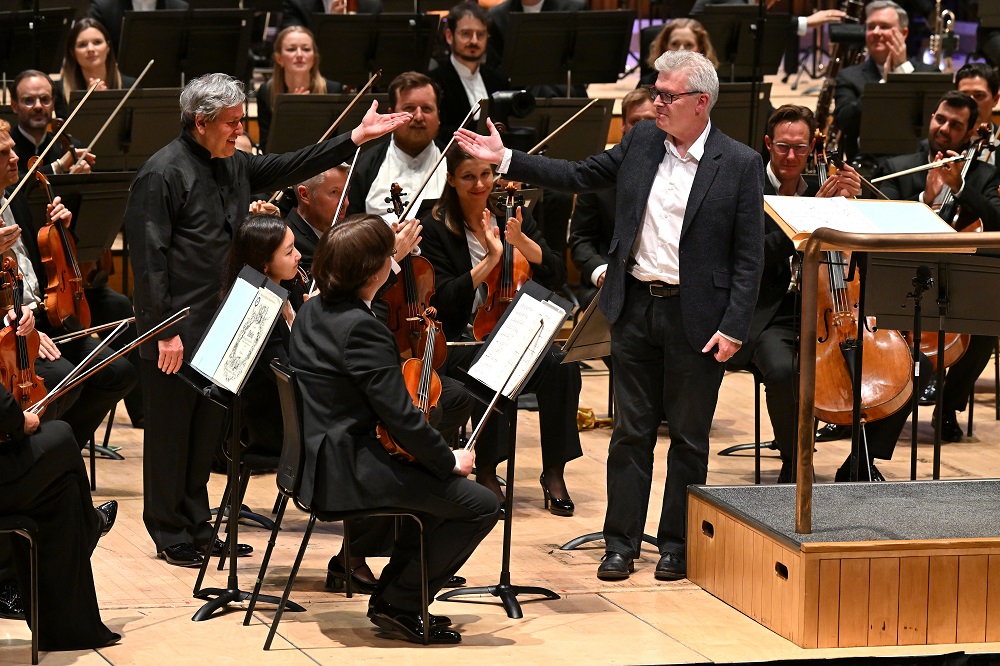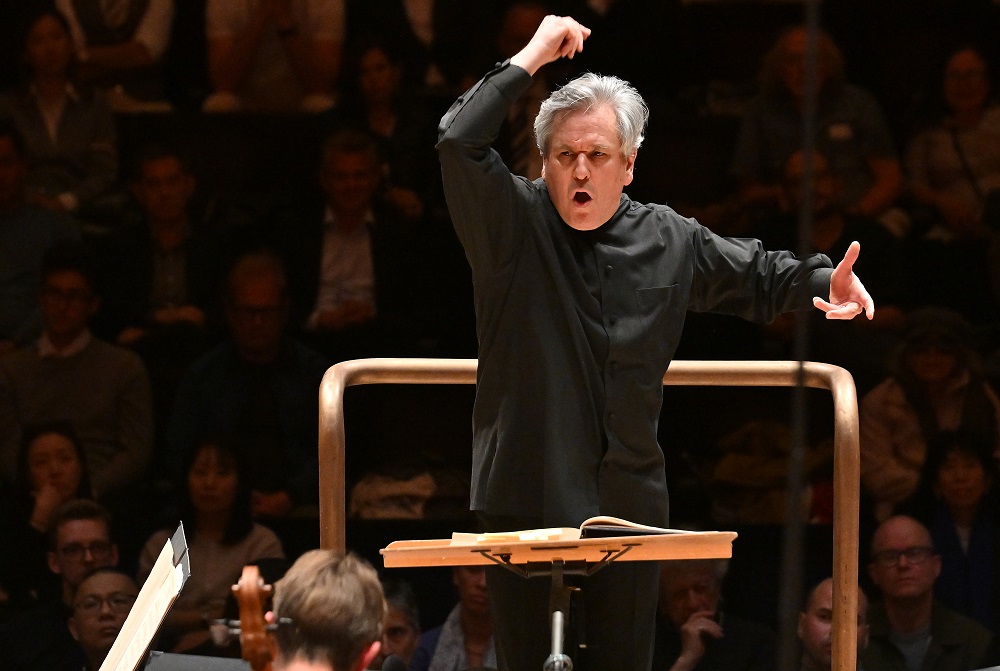Somehow those of us required to translate the musical experience into words look for the moments which defeat us. One such was the extraordinary sound of muted first violins and cellos at the start of the second movement in Sibelius’s First Symphony last night. Pinpointing its essence feels impossible, but it could only have come from the London Symphony Orchestra’s special relationship with its new Chief Conductor Antonio Pappano.
It can’t have been planned at the time of the commission, but an alliance was forged between the Sibelius symphony and the new work on the programme, James MacMillan’s Concerto for Orchestra, “Ghosts” (conductor and composer pictured below). Both make unorthodox switches between wildly contrasted textures unique to their composers, and yet it all hangs together. MacMillan’s first allegiance is to his work’s title. It doesn’t feel symphonic: though the most extended of the slow sections tries with exposed writing for strings (another Sibelius link, though often with MacMillan's familiar Celtic turns), the kind of depths Bartók and Lutosławski achieve in works with the same name aren’t quite reached. 
No-one could have been left in doubt of the sense in the Sibelius, given Pappano’s vivacious and atmospheric sleights of hand in shifting the moods. This has to be the most original of first symphonies (I can only think of Mahler’s, featuring in the fourth of Pappano’s inaugural concerts on 19 September, and Schnittke’s as of comparable personality). Chris Richards was left on his own – well, with a timpani roll to start with – in shaping the melancholy vocal clarinet solo (some principal players replaced others in the second half of the concert). Then, tremolos and legatos blazing, the strings gave the optimistic challenge. 
As, in its more organic way, was Nielsen’s Helios Overture - a canny starter, horns magnificently leading us to dancing light and back to rest. Somehow this, too, reflected the personality of a conductor whose sunrise choice proved distinctly original and who will never give us an under-engaged performance; only the interpretations may be questioned and they haven’t been in his brllliant LSO concerts to date.












Add comment